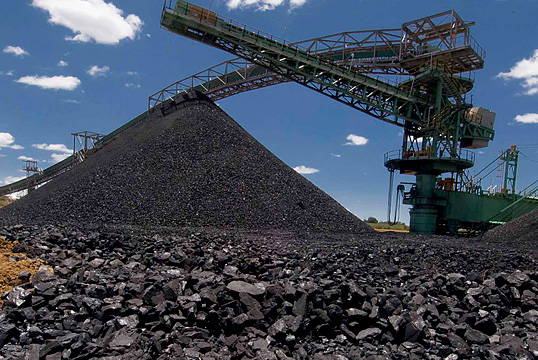Business
Mining: Centre Begs FG To Formalise Activities Of Small Minerals Producers’

The Centre for Leadership, Strategy and Development (Centre LSD), has called on the Federal Government to formalise small-mineral producers to curb losses in the sector.
The acting Executive Director of the Centre, Mr Monday Osasah, made the call in Abuja at the Second Mining Summit on the Challenges of Co-operative Development and Organisation among Artisanal Miners.
According to Osasah, mining co-operatives are associations created by miners, aimed at supporting the exploitation, industralisation and commercialisation of mining products.
He said that the world over, such associations had contributed to the growth and development of countries and were also instrumental in enhancing technological development and improving economies of scale.
“In Nigeria, the legal formalisation of the existence of small-mineral producers is a big challenge as majority of the miners work illegally.
“Formalisation of artisanal mining is a process that can include the introduction of legal and regulatory frameworks.
“It also provides legal access to minerals, information about geological data, organising miners into flexible and dynamic organisations and providing access to capital equipment and technical assistance.
“Governments of resource rich countries across the world are increasingly passionate about formalising artisanal miners, informality means that governments are losing out on important revenues from mining .’’
Osasah said that the process for formalisation was an opportunity to start capturing revenues from the sector and reinvesting these revenues into important social services.
He said the lack of a formalised sector also makes it very difficult for government to put into practice effective strategies, policies and regulations for minimising potential negative environmental and health impacts.
He said that formalisation comes with a lot of advantages to artisanal government, large scale miners and host communities ranging from promotion of better working practices to capturing of revenue by government.
Osasah said that formalisation was imperative now because Nigerian mining sector was gradually becoming the toast of both local and foreign investors and this makes organising critical and necessary.
He said that one of the ways to achieve this was the formulation of cooperative societies with the ministry which would also pave way for miners to enjoy schemes and loans.
This, he noted includes the N5 billion loan jointly provided by the ministry and Bank of Industry.
Ms Janet Adeyemi, the President Women in Mining, encouraged miners to be knowledgeable about the products they mine and form cooperatives so to avoid being cheated by investors.
Adeyemi said that most times, miners sell products without knowing what they were used for, thereby, short changing themselves.
She urged miners to be abreast with latest technology to enable them know what the different minerals were being used for, adding that it would give them an edge to effectively negotiate prices.
Adeyemi said that it was time for the government to invest in the mining sector because it had been neglected for so long, adding that investing in the sector would turn the economy around.
Earlier, Mr Ebhota Al-Amin of the Federal Ministry of Mines and Steel Development (MMSD), said that mining had not been able to contribute meaningfully to Nigeria’s Gross Domestic Product (GDP) because of illegal activities and lack of coordination.
Al-min said good percentage of exports in the sector remained undocumented and urged miners to come together in groups to access loans and equipment so as to develop in large scale.
Mr Awal Ibrahim, Miners Association of Nigeria said the group was collaborating with Manufacturers Association of Nigeria (MAN) to harness the potential in the mining sector.
Ibrahim said that Nigeria had polices on mining but they were not being implemented and called on the ministry and its parastatals to develop work plan toward implementation to strengthen the sector.
The News Agency of Nigeria (NAN) reports that the programme was supported by the Open Society Initiative for West Africa (OSIWA) to empower citizens to transform the society.


















